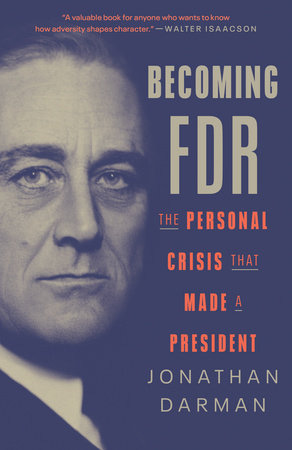Lessons from FDR
This week, our nation's 249th birthday was marred by political cruelty and cowardice. How to respond? Our 32nd President's example is a guiding light toward becoming better, not bitter.
Out of suffering can come triumph.
For everyone, it’s not a question of if but when we suffer. It's how we respond to trials and tribulations that determines whether the pain sparks a net gain.
Hackneyed phrase alert: Do you become better or bitter in the process?
Consider Franklin Delano Roosevelt, our 32nd U.S. President. At 38, he was a candidate for Vice President (albeit on a landslide-losing ticket), a strapping 6-foot-2 figure whose physical energy was central to how he communicated his political promise.
Less than a year later, in August 1921, he was stricken by what was then termed infantile paralysis and later came to be known as polio. How he reacted over the next dozen years is at the heart of Becoming FDR: The Personal Crisis That Made a President. I finished reading the book last night, an extreme juxtaposition to events transpiring at the U.S. Capitol.
Notably, FDR’s personal crisis prepared him to take the helm of American leadership at a time of extreme national and global crisis in the throes of the Great Depression. Published in 2022, Becoming FDR also explores a variety of fascinating subplots, none more compelling than that of FDR's wife, Eleanor.
As for FDR, he was no saint. Along with the strengths that led to his 12-year tenure as President, his foibles and flaws are exposed in this excellent work by Jonathan Darman, who has also authored books about Lyndon Johnson and Ronald Reagan.
I’ve cast 10 Presidential votes in my lifetime, multiple times for both Republicans and Democrats, and once even for a third-party candidate. I am part of the rising tide (43%) of self-identified Independents in this polarized nation. In short, I’m not a born-again believer in either the Left or the Right.
So, I’m open to leadership and solutions that come from anywhere on the political spectrum. With that in mind, a century after FDR was in the thick of his own personal and political transformation, what insights can we apply from his example?
A few that spring easily to my mind:
Traits like humility and patience are leadership superpowers. FDR lacked in both categories before his illness; afterwards, they were integral to his leading the U.S. through an epically fraught period.
When it seems like all is lost, don't give up. What appears to be a dirty mess—weakness commingled with defeat—can be transformed into the fertile soil of strength and victory down the line.
At the end of this week, our 249th birthday as a nation marred by political cruelty and cowardice masquerading as something big and beautiful, holding this long-term historical perspective feels especially vital.
It’s my prayer that as a whole, in these divided United States, we are populated by a majority who genuinely strive for the American spirit that's always been more aspirational than actual.
Regardless of our political leanings, may we choose to follow FDR’s lead and become better, not bitter.



Thanks for the book review and the excellent summary of growth required of us all. You may enjoy the companion story of FDR's Labor Secretary, Francis Perkins, The Woman Behind The New Deal, by Kristin Downey. This book and its gorgeous history summation has comforted me these past several months. I can stand resolute and productive if Francis Perkins could achieve what she achieved with her personal and political challenges (she began her work when it was still ok to abridge and deny women's voting rights.) You are an inspiration to wanna be writers, dear Cousin
Matt you said it so well. Hopefully we will survive and get someone humble, caring and knowledgeable 🙏